What can be done to curb domestic violence?
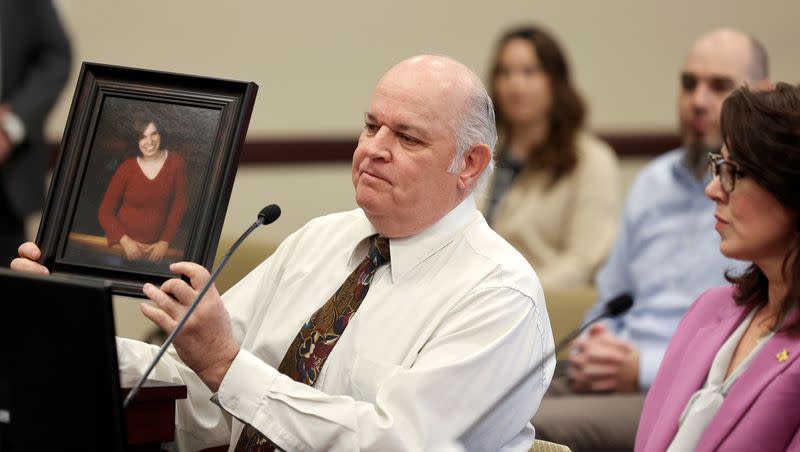
Editor’s note: This story is part of a package on domestic violence issues in Utah following months of reporting by the Deseret News and KSL NewsRadio. The package includes stories about those involved in the crisis, a dive into the numbers in the state and the nation and possible solutions state leaders are considering.
It was early in the morning on Aug. 17, 2022, when Utah Lt. Gov. Deidre Henderson’s phone buzzed with a news alert: fatal shooting in Taylorsville. Henderson arrived at the Capitol, and started her day.
At noon, her phone buzzed again as she walked out of her office, this time a text from her mother. The victim was her cousin, Amanda “Mandy” Mayne; the perpetrator was her ex-husband, Taylor Martin, who later turned the gun on himself.
Shocked and devastated, as she recalls, Henderson went to her aunt’s house where her cousin lived. “We sat there in silence for hours, just stunned,” Henderson said.
When detectives came by the house that afternoon, Henderson learned Martin had harassed her cousin at work that week, on Aug. 15; the next day, he again made threats to her workplace; and on Aug. 17, Martin stalked Mayne to a bus stop at about 5 a.m. and shot her 11 times, killing the 34-year-old. She had a domestic violence pamphlet in her pocket, her family says.
“He was known, and that was very shocking to me. I thought, how did we get here? If there were two interactions already this week? How did we get here?” Henderson said, sitting in her office during an interview in September with the Deseret News and KSL NewsRadio.
Martin had a history of violent and threatening behavior — he had threatened a federal judge, former Gov. Gary Herbert, Mayne and her mother, and floated in and out of jail in the years leading up to the murder.
“What we found was shocking and disappointing, but also very clearly identified the gaps in our system that we absolutely needed to plug,” Henderson said.
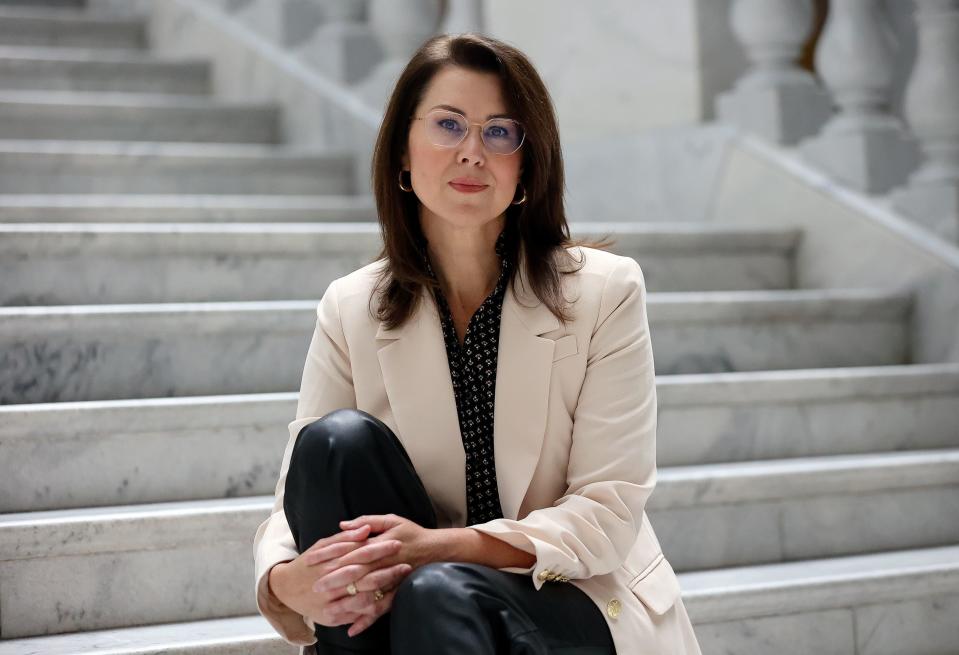
So the lieutenant governor got to work. With support from lawmakers, she lobbied for passage of SB117, which requires all law enforcement officers in Utah to conduct a lethality assessment when responding to intimate partner violence. The bill sailed through the legislature with unanimous support from lawmakers, who also passed $30 million in funding for domestic violence service providers.
Standardizing the lethality assessment was seen as an effective, relatively easy step the legislature could take to curb intimate partner violence in Utah. But with domestic violence a leading cause of homicide in Utah, what’s next?
Near Liberty Park, on a quiet street in Salt Lake City, sits an unassuming purple house. For those who pass by, it doesn’t seem extraordinary — but “My Auntie’s House” is a first-of-its-kind approach to helping families struggling with domestic violence.
Run by the founders of the Amethyst Center For Healing, a Salt Lake-based nonprofit that provides counseling for people who have experienced domestic violence, My Auntie’s House is a halfway house for men who have used violence in their home. Based off a model first rolled out in Israel, it’s a novel approach that seeks to keep women and children from moving into a shelter, while rehabilitating abusive men.
Some of their clients come under a court order, at the request of a parole officer or as part of their probation. The Utah Division of Child and Family Services can also refer men to the home, while others might check themselves in at the request of their family, or clergy.
Most men are admitted for four to six weeks. They get a full risk evaluation, and staff reviews their criminal, mental health and substance abuse history. They’re encouraged to continue working — if they’re unemployed, the center helps them find a new job. They sign a release of information for their probation officer, the victims of record and for a number of other people. They’re notified if the man leaves and although it’s not a lockdown facility, failing to appear might be a violation of parole or a court order.
Related
“You might do a little time in jail and then decide you don’t like jail as much as you like being here,” said Martha Burkett Fallis, one of the center’s founders.
The man is not allowed to have any contact with the victim, though staff will update them on their progress. When they’re not at work, clients attend individual and group therapy, have various chores, buy groceries, cook dinner and clean. When they finish the program, staff helps to safely reintegrate the family or help create a co-parenting plan.
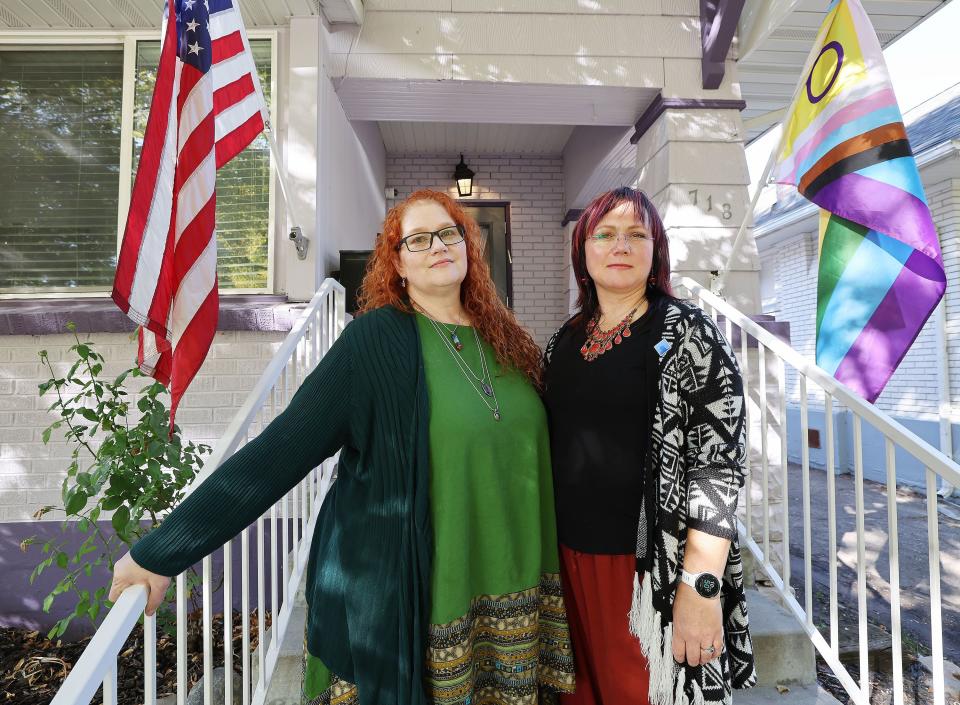
“The majority of victims don’t necessarily want to leave a relationship, they just want the violence to stop. And even if they do want to leave the relationship, if they have children? You’re still co-parenting these kids,” said Jana Fulmer. “... The goal is for them to learn how to live in a house with other people and navigate conflict.”
And a big selling point, Fulmer said, is victims not being forced to leave their home and stay in a shelter. One of the biggest reasons that women and children experience homelessness is domestic violence.
“By taking eight men into this house, that’s eight families that don’t have to go to a shelter and aren’t at risk for homelessness,” Fulmer said.
My Auntie’s House is likely what Wendy Isom, director of Salt Lake City Police’s Victim’s Advocate Program, would call thinking outside the box.
Isom has worked with the department since 2004, and has seen the way victims interact with police, evolving toward what she calls a survivor driven model, which “lets the survivor create a better individualized plan.”
That includes a shift in the way protective orders have to be obtained, Isom said. Prior to the COVID-19 pandemic, victims seeking a protective order sometimes had to spend eight hours in person at a courthouse. Now, it’s a virtual process.
“When I started, the victim might have to get up out of that hospital bed, travel to the courthouse, and be medically stable enough to spend a whole day there. Now I can take an iPad up to their hospital room, or they can do that intake by telephone or virtually,” Isom said.
Her staff talks with victims minutes after a crime is reported to law enforcement — other times, it’s someone calling them 10 years after an incident, asking if their abuser is still in prison and when the next board of pardons hearing is. They’ll speak to victims over the phone, or meet them in their home, a coffee shop, their children’s school or a medical clinic.
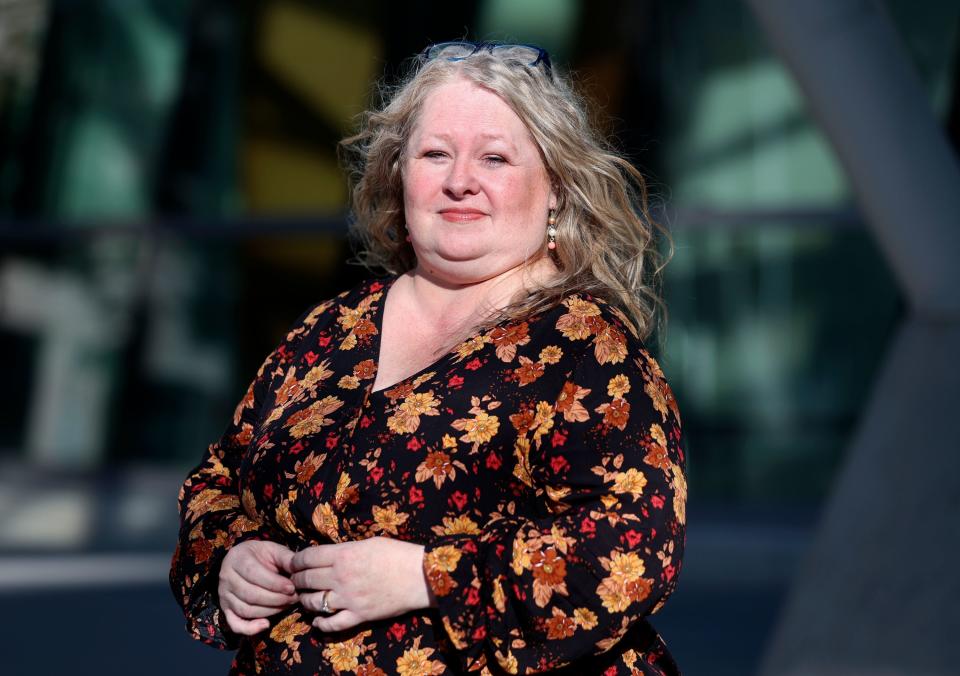
Overall, Isom says, there’s room for improvement. “I would get really far out of what we’re doing right now,” Isom said when asked what she would do if she were queen for the day and could change things. It starts with prevention, she says — teaching young children what healthy relationships look like.
“Because domestic violence has so many layers, we need to look at childhood trauma, we need to look at mental health, we need to look at relationships, we need to look at self esteem, depression and suicidality, we need to look at the use of violence in our culture. … We need to look at gang culture, we need to look at music, arts, entertainment, government systems, how we shelter people or don’t shelter people, how we deliver services or don’t,” Isom said. “I don’t mean it to sound as bleak as I’m making it sound, but if I was in charge of the world, it would be a radical shift.”
Any kind of “radical shift” is impossible without funding, one of the main levers the Utah Legislature can pull. Last session, lawmakers passed a record $30 million in funding for victim services — Henderson will again lobby for more funds this upcoming session, though she couldn’t give a dollar amount yet.
“I don’t know that we could ever get enough money to solve this, right? We just have to do the best that we can,” she said.
But there are other steps lawmakers can take, whether it’s procedural changes to the way victims interact with the legal system, to increased gun control. Since 2018, guns were used in the majority of domestic violence homicides in Utah, according to an analysis by the Deseret News and KSL NewsRadio.
Henderson describes herself as someone who “believes in and reveres the Second Amendment.”
“The worst thing for people who are believers in the Second Amendment is to have people out there who shouldn’t have guns, having easy access to guns. The question is, how do we get from here to there? And it is politically challenging,” she said.
That could mean increased vetting for private firearm sales, making it more difficult for restricted people to access guns or ammunition. Henderson said that might “require some of these gun advocates to step up to the plate and help find some solutions.”
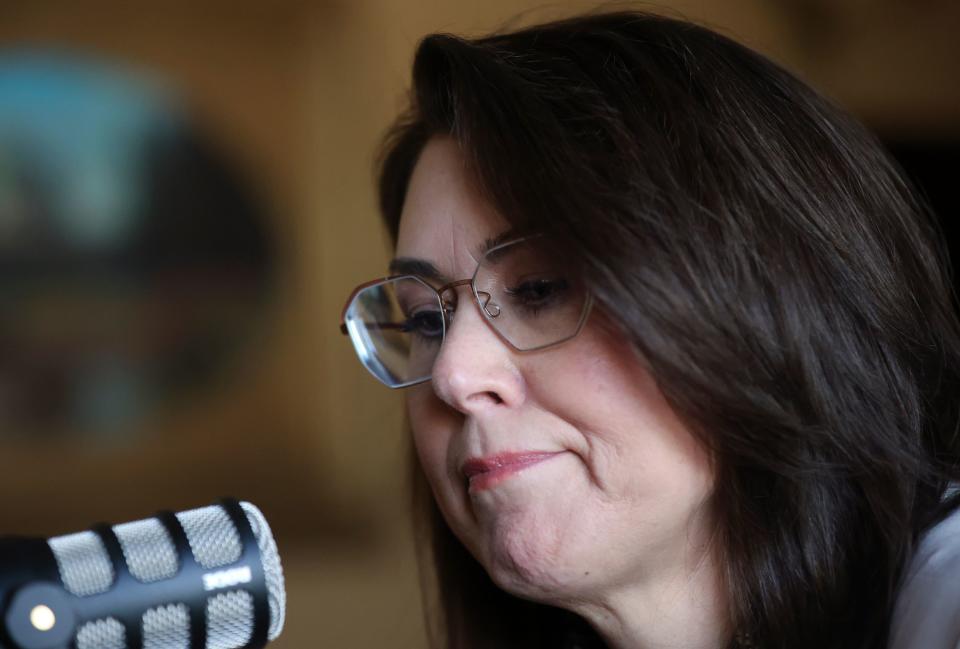
Henderson also said domestic violence should be viewed differently on the first offense. As she canvassed law enforcement in the wake of her cousin’s death, she said officers were frustrated by how easy it was for perpetrators to walk free.
“They know who some of these really problematic people are, arrest them, and put them in jail. And before they can file any paperwork, that guy’s back out on the streets. So there probably ought to be some sort of cooling off period,” Henderson said.
For Sen. Stephanie Pitcher, D-Millcreek, that’s where bail reform comes into the picture. In 2021, she sponsored HB2003, which reformed Utah’s bail system and directed judges to assess risk over wealth.
“Are you a risk to the community? Are you going to show up to your court appearances? Are you going to obstruct the criminal justice process? These are things that the court has to answer,” said Pitcher, a former prosecutor for Davis County.
One change Pitcher is considering proposing through legislation is an exception to spousal immunity for domestic violence cases. One of the hardest things for prosecutors, she says, are victims who don’t cooperate, and don’t have to because of spousal immunity.
If the victim is not married to the perpetrator, prosecutors have tools — “we can then bring in other statements that that victim made to law enforcement, as an example, to paint a broad picture about what actually happened,” Pitcher said. “... If they’re married, we can’t do that. And so we often would just lose cases, because the victim would say, ‘I’m sorry, but I’m not going to cooperate.’”
Pitcher acknowledges it’s a novel concept, one that would require a constitutional amendment.
“But I will say, there are a handful of states that have already done this,” Pitcher said, including Texas and Virginia.
Through the Deseret News and KSL NewsRadio’s months of reporting, speaking with victims’ advocates, politicians, police officers and therapists, a common theme came up in interviews — believe victims.
“I saw it happen to Mandy, over and over and over and over. She called police, my aunt called police. They were told, ‘That’s just talk. That’s just who he is,’” Henderson said.
This year, Henderson had her first family reunion without her cousin Mandy. In recent years, the lieutenant governor had drifted apart from that side of the family. Mandy’s death, Henderson said, “brought our family together in a lot of really meaningful ways.”
“There’s been some really beautiful healing in the wake of this terrible situation,” she said, tearing up at the end of the interview.
If you or someone you know is experiencing domestic or dating violence, resources are available. If there is an immediate danger, call 911. The Utah Domestic Violence Coalition number is 1-800-897-5465. The National Domestic Violence Hotline is 1-800-799-7233.

